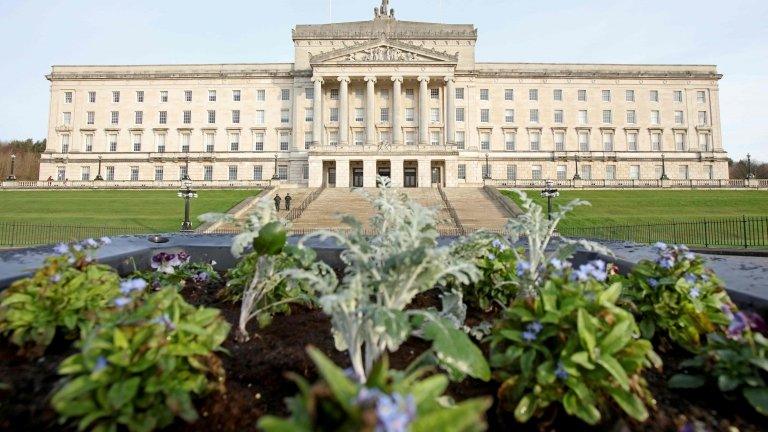Stormont deal: Parties return to assembly after agreement
- Published
Sinn Féin President Mary Lou McDonald (left) addressed reporters at Stormont
Sinn Féin and the DUP have re-entered devolved government in Northern Ireland after three years of deadlock on Saturday.
The two parties have supported a deal to restore Stormont's political institutions.
The British and Irish governments published the draft proposals, external on Thursday, after nine months of talks.
Stormont's power-sharing coalition, led by the DUP and Sinn Féin, collapsed in January 2017 over a green energy row.
Before the proceedings began, both the Ulster Unionist Party and the Alliance Party confirmed that they would be entering the new executive.
Alliance leader Naomi Long also revealed that she would be accepting the position of justice minister.
That means all five main parties in Northern Ireland will join the executive.
In the first item of business, Sinn Féin's Alex Maskey was elected as the assembly's new speaker after a vote. Out of the 83 MLAs - members of the legislative assembly - who voted, 51 backed the former lord mayor of Belfast.
The DUP's Christopher Stalford; UUP's Roy Beggs and SDLP's Patsy McGlone are his three deputies.
The MLAs are now set to appoint the 10 ministerial roles.
DUP leader Arlene Foster and Sinn Féin Vice-President Michelle O'Neill are expected to be named first and deputy first ministers respectively.
The proceedings are being streamed live on the BBC News NI website from 13:00 GMT, and there will also be coverage on BBC Parliament and BBC Two NI from 15:30 GMT.

What caused Stormont to collapse?
Relations between the DUP and Sinn Féin had deteriorated in recent years as the two parties were diametrically opposed not only on Northern Ireland's position within the UK, but also issues such as the Irish language; same-sex marriage; abortion and how to deal with the legacy of the Troubles.
But unexpectedly it was a row over a green energy scheme which pushed their relationship past breaking point.
The Renewable Heat Incentive (RHI) scheme was set up by DUP leader Arlene Foster when she was enterprise minister, but it ran over budget and at one point threatened to cost taxpayers £490m.
Sinn Féin demanded that Mrs Foster step aside as first minister during an inquiry into the RHI scheme and when she refused, they pulled out of government on 9 January 2017.
How was a deal struck?
Two key sticking points in the Stormont talks were around an Irish language act and the petition of concern.
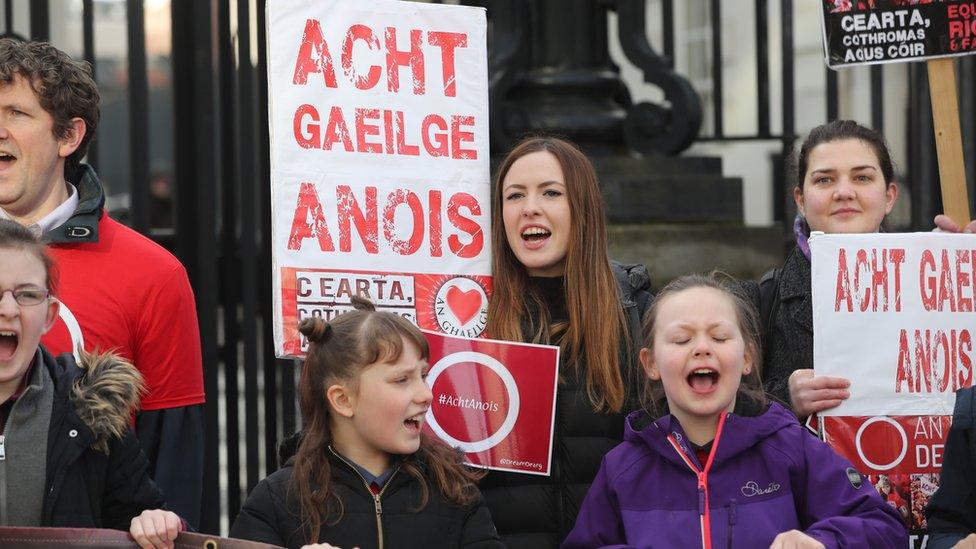
The call for an Irish language act has been a key sticking point
The draft deal says there is to be "meaningful reform" of the petition, which would be "reduced and returned to its intended purpose" and would "only be used in the most exceptional circumstances and as a last resort, having used every other mechanism".
The proposed deal would see legislation created for the appointment of both an Irish language commissioner and an Ulster-Scots commissioner.
Earlier, Irish language group Conradh na Gaeilge welcomed the draft deal as "historic advancement but added it "falls very much short" of promises for an Irish Language act.
Other key points in the deal include the Northern Ireland Executive settling an ongoing pay dispute with nurses and increasing policing numbers.
- Published10 January 2020
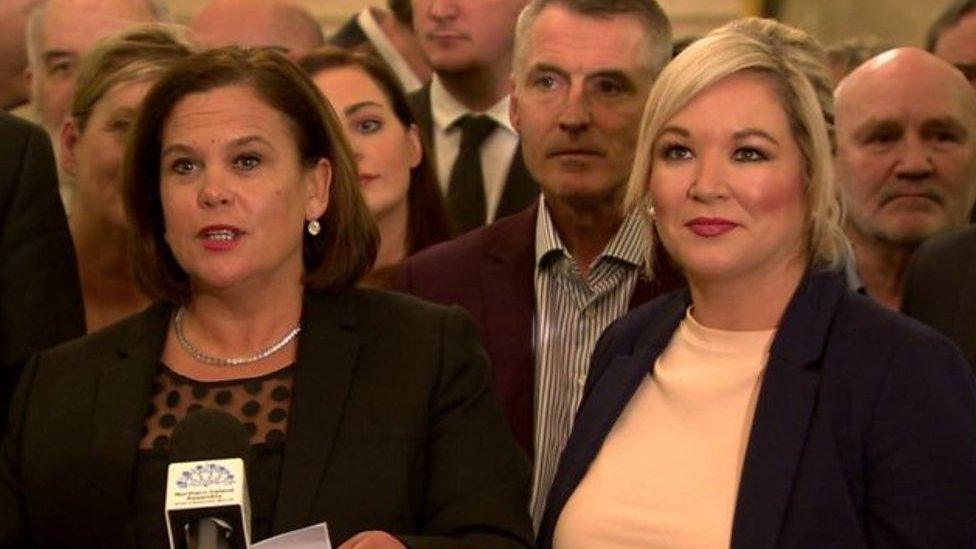
- Published10 January 2020
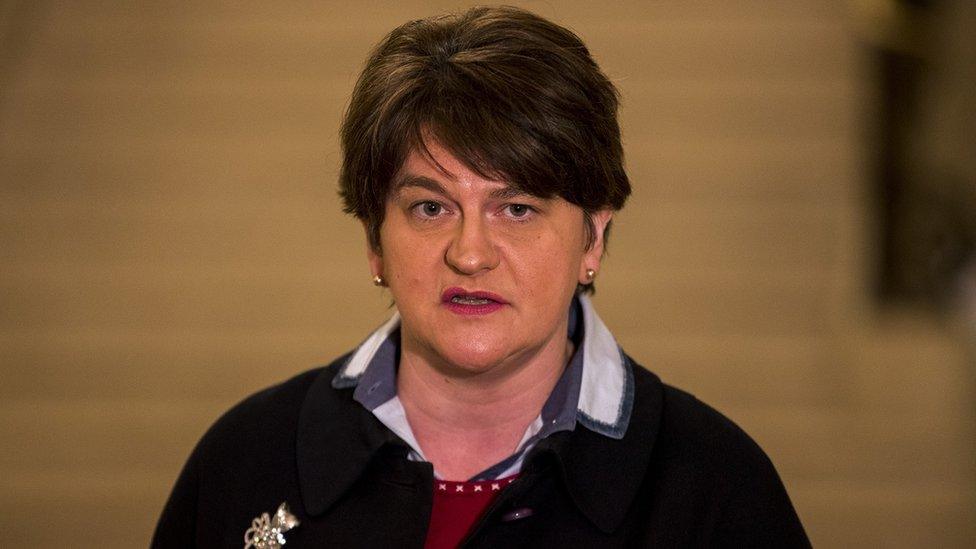
- Published10 January 2020

- Published10 January 2020
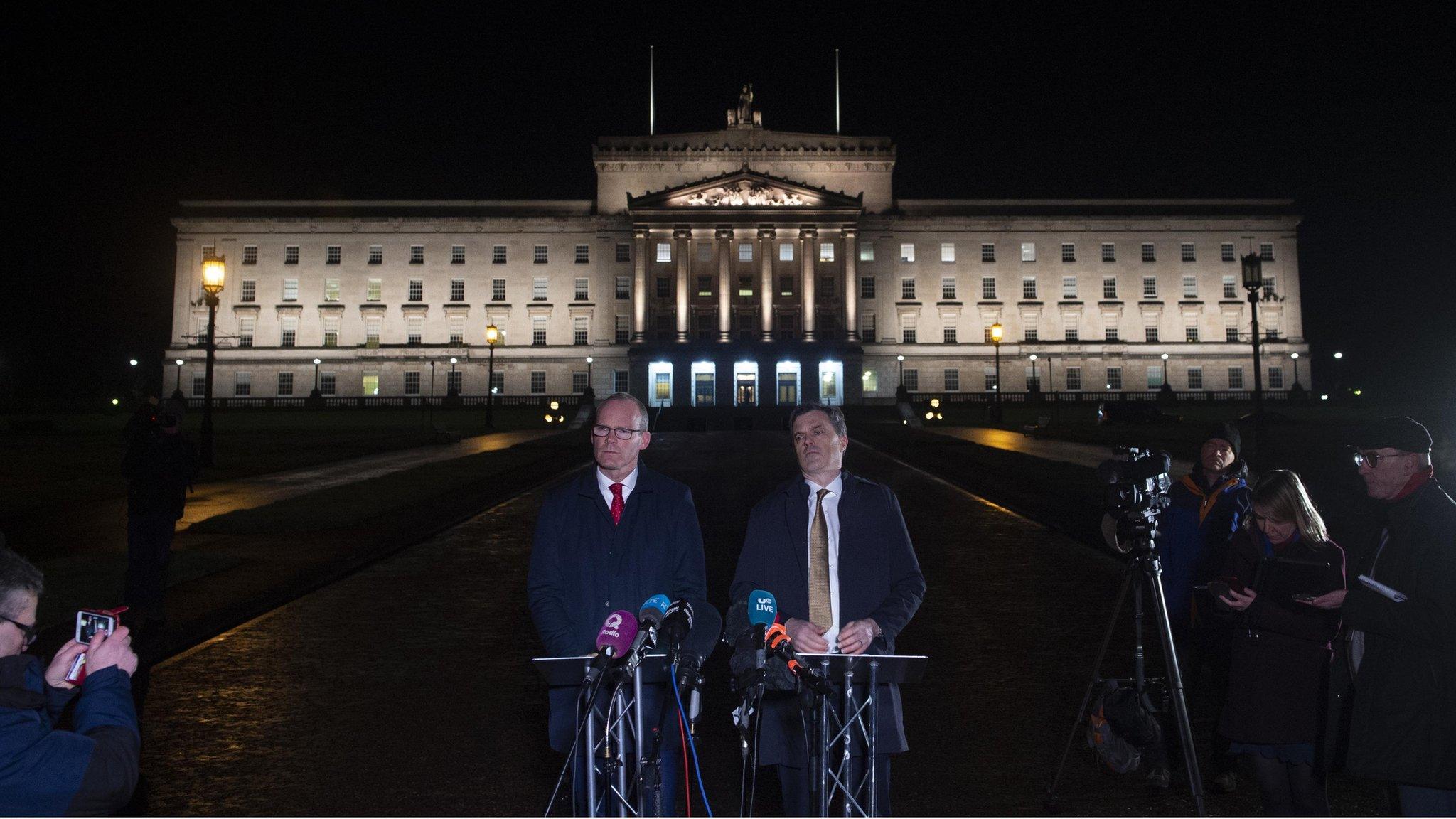
- Published10 January 2020
